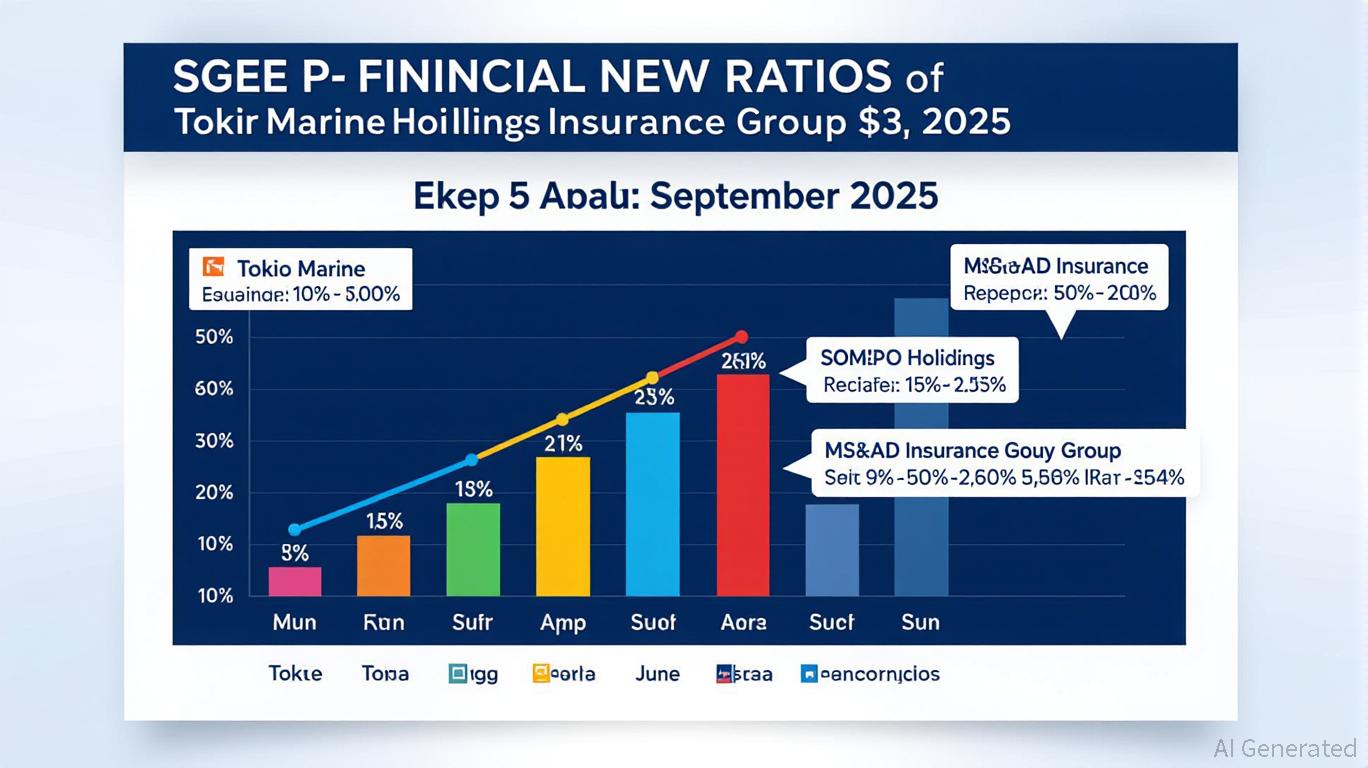
In the evolving landscape of Japan’s insurance sector, Tokio Marine Holdings Inc. has emerged as a standout player, leveraging aggressive share buybacks to signal confidence in its intrinsic value and optimize capital allocation. With a 2025 repurchase program of ¥220 billion—a ¥20 billion increase from its original plan—the insurer is sending a clear message: it believes its shares are undervalued and that returning capital to shareholders is a priority [2]. This strategy, however, must be evaluated not only in isolation but also within the broader context of Japan’s corporate governance reforms and a shifting interest rate environment.
Strategic Buybacks and Capital Discipline
Tokio Marine’s buyback program is part of a disciplined capital return strategy that balances dividends, share repurchases, and strategic investments. For fiscal year 2025, the company has already repurchased 1.15 million shares for ¥6.89 billion in July alone, with a total budget of ¥110 billion allocated for up to 70 million shares [1]. This approach reflects a commitment to enhancing shareholder value while maintaining a robust Economic Solvency Ratio (ESR) of 149% as of September 2024 [2]. By aligning profit growth with shareholder returns, Tokio Marine is demonstrating a rare blend of financial prudence and strategic ambition.
The rationale for these buybacks is further underscored by valuation metrics. Tokio Marine’s forward P/E ratio of 9.21 [1] and Price/Book ratio of 2.48 [2] suggest the stock is trading well below its estimated fair value of ¥12,596.78 [3]. Analysts have noted that the company’s PEG ratio of 0.70 [5] indicates it is undervalued relative to its earnings growth prospects, particularly given its 43% annualized earnings-per-share growth over the past five years [1]. This creates a compelling case for buybacks, as repurchasing undervalued shares effectively increases equity value for remaining shareholders.
Rising Interest Rates and Sector-Wide Implications
Japan’s monetary policy shift in 2025 has added another layer of complexity to capital allocation decisions. The Bank of Japan’s exit from negative interest rates has made holding excess cash less attractive, pushing insurers to prioritize returns to shareholders [4]. For Tokio Marine, this environment amplifies the effectiveness of buybacks, as higher interest rates increase the cost of capital and incentivize companies to deploy cash more efficiently.
The broader insurance sector is also adapting. Japanese insurers, including Tokio Marine, SOMPO Holdings, and MS&AD Insurance Group, are unwinding cross-shareholdings—a legacy of Japan’s corporate governance past—to return capital to shareholders. For example, SOMPO recently executed a ¥155 billion buyback as part of a ¥209.4 billion shareholder return program [3], while MS&AD has focused on improving overseas returns and closing efficiency gaps [3]. These moves reflect a sector-wide embrace of governance reforms that prioritize transparency and investor returns.
Peer Comparison and Market Positioning
Tokio Marine’s approach stands out when compared to its peers. While SOMPO Holdings trades at a P/E of 19.2 [2] and MS&AD at 7.69 [1], Tokio Marine’s 9.21 P/E suggests it is the most undervalued of the trio. This discrepancy may stem from its stronger underwriting track record and overseas expansion, which have driven nearly half of its consolidated financial performance [2]. Additionally, Tokio Marine’s ROE of 11.67% [3] (compared to MS&AD’s 16.23% [2]) highlights a trade-off between growth and valuation efficiency.
The company’s capital allocation strategy also diverges from peers. While MS&AD has focused on overseas acquisitions and reinsurance innovations [3], Tokio Marine has prioritized buybacks and M&A opportunities that align with its domestic and international expansion goals [2]. This balanced approach—combining share repurchases with strategic investments—positions Tokio Marine to capitalize on both near-term undervaluation and long-term growth.
Conclusion: A Model for Value Creation
Tokio Marine’s share buybacks are more than a short-term tactic; they represent a strategic response to undervaluation, rising interest rates, and evolving corporate governance norms. By repurchasing shares at a discount to fair value, the company is enhancing shareholder returns while maintaining financial discipline. In a sector where capital efficiency is paramount, Tokio Marine’s approach sets a benchmark for peers and underscores the potential for value creation in Japan’s insurance market.
As interest rates continue to rise and governance reforms deepen, the insurer’s ability to balance buybacks with growth investments will be critical. For investors, the message is clear: Tokio Marine’s disciplined capital allocation and undervalued shares make it a compelling case study in how strategic buybacks can drive long-term value in a transforming industry.
Source:
[1] Tokio Marine Holdings, Inc. (TKOMY) – Yahoo Finance, [https://finance.yahoo.com/quote/TKOMY/key-statistics/]
[2] The Attractive Business of Japanese Insurers, [https://www.hennessyfunds.com/insights/Sector-highlight-the-attractive-business-of-Japanese-insurers]
[3] MS&AD Insurance Group Holdings (8725) Financials: Ratios, [https://www.tipranks.com/stocks/jp:8725/financials/ratios]
[4] Japan’s Corporate Reforms Create a Catalyst for Equity Returns, [https://www.alliancebernstein.com/corporate/en/insights/investment-insights/japans-corporate-reforms-create-a-catalyst-for-equity-returns.html]
[5] TKOMY or WRB: Which Is the Better Value Stock Right Now?, [https://www.nasdaq.com/articles/tkomy-or-wrb-which-better-value-stock-right-now-1]


AloJapan.com